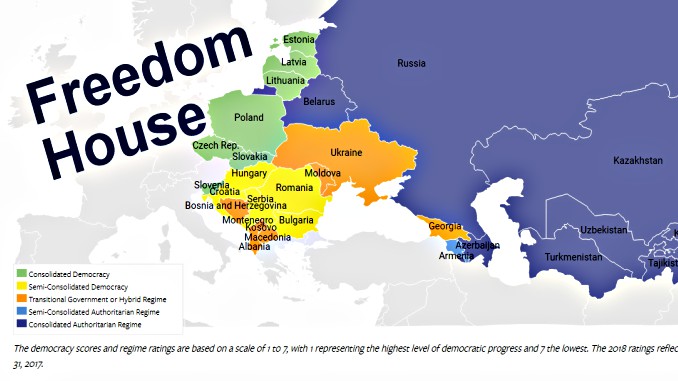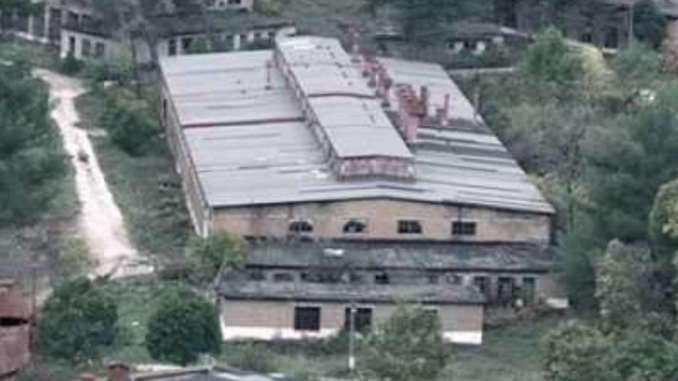Balkans Sliding Towards Authoritarianism – Says Freedom House

Tirana, Apr 12 (Tirana Echo) – Countries of the Western Balkans seem to consolidate political power and are sliding towards authoritarian tendencies according to the annual ‘Nations in Transit’ report by US based group Freedom House.
Serbia’s score declined for the fourth straight year, threatening its status as a “Semi-Consolidated Democracy.” The consolidation of power under President Aleksandar Vučić continues.
Albania risks sliding towards authoritarian tendencies if its fight against corruption and democratic institutions are not significantly strengthened in the coming year. The country remains a transitional hybrid regime.
Montenegro’s National Democratic Governance rating declined due to the opposition’s continued boycott of parliament, which called into question the legitimacy and functioning of the government, despite NATO membership and progress towards membership in the European Union (EU).
2017 might be described as “another year of wasted opportunities” in Bosnia and Herzegovina (BiH). There was not a single aspect of life that was not polluted with inflammable rhetoric and cheap politicization, all originating from the most influential political leaders.
Kosovo had a convulsive year in 2017. There were some improvements in electoral processes and civil society, while the fight against corruption stalled due to a lack of political will. Despite ever present semi-authoritarian temptations and the cooption of the administration by external interests, the existing constitutional and legal framework continued to provide safeguards against an outright concentration of power.
After more than two years of sharp decline in democratic development since the “Wiretapping Affair” in 2015, Macedonia managed to change course in 2017, and its National Democratic Governance rating improved due to political stabilization after the 2015–16 turbulence, and positive, albeit limited, measures by the new government to overcome the capture of state institutions. The establishment of the SDSM-led government marked the end of several years of political crisis and 11 years of increasingly controversial rule by VMRO-DPMNE.
In 2018, Nations in Transit registered the most score declines in the project’s 23-year history: 19 of the 29 countries had declines in their overall Democracy Scores. For the second year in a row, there are more Consolidated Authoritarian Regimes than Consolidated Democracies.
Poland recorded the largest category declines and the second-largest Democracy Score decline in the history of the report. The government’s takeover of the judicial system, politicization of public media, smear campaigns against nongovernmental organizations (NGOs), and violations of ordinary parliamentary procedure have resulted in a dramatic decline in the quality of Polish democracy.
Hungary has registered the largest cumulative decline in Nations in Transit history, after its score has fallen for 10 consecutive years.
Serbia’s score declined for the fourth straight year, threatening its status as a “Semi-Consolidated Democracy.” The consolidation of power under President Aleksandar Vučić continues.
Albania risks sliding towards authoritarian tendencies if its fight against corruption and democratic institutions are not significantly strengthened in the coming year.
The bright spots this year were Macedonia, Uzbekistan, and Estonia. A change of government in Macedonia in June brought a chance to reverse years of state capture and resolve disputes with neighbors. Uzbekistan’s modest thaw after the death of the president in August 2016 produced its first score improvements since 2005. Despite being already the best performer in the survey, Estonia’s score improved in three categories.
Copyright @2018 TiranaEcho.com Source: Freedom House






